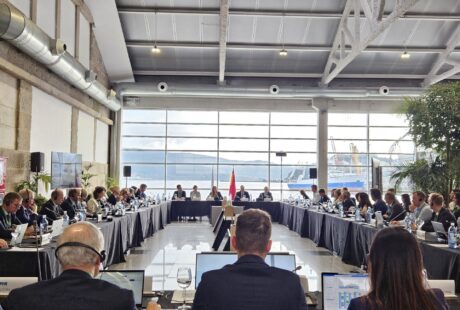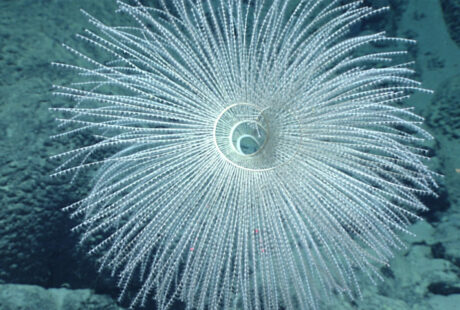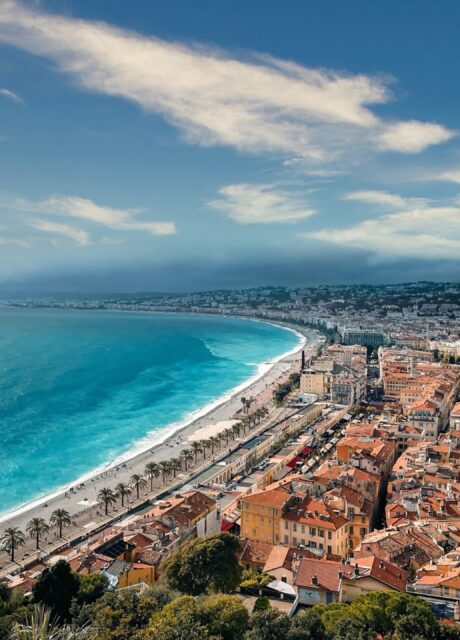Today [17 September], 16 European NGOs sent a letter to President Ursula von der Leyen expressing strong criticism of the recently released Draghi report, which identifies deep-sea mining as a potential growth opportunity and which is referred to in each mission letter sent today by von der Leyen to Commissioners-Designate. They call the proposal a false solution and ask the EU Commission to stand by their current stance on halting deep-sea mining.
While the Draghi report refers to one 11-year-old study on the availability of seabed minerals, more recent findings highlight the financial risks and uncertainties of deep-sea mining. Europe’s leading scientists have warned that it could cause irreversible damage to biodiversity, disrupt marine ecosystems, and jeopardise the ocean’s role in regulating the climate.
Instead of pushing for environmentally unsustainable practices, the 16 NGOs call on the EU to focus on sustainable solutions, taking the opportunity to position itself as a global leader in battery technology, resource efficiency, and the circular economy. The need to boost the circular economy is explicitly referred to in President von der Leyen’s mission letter to Jessika Roswall, Commissioner-Designate for Environment, Water Resilience and a Competitive Circular Economy as well as Stéphane Séjourné, Executive Vice-President-Designate for Prosperity and Industrial Strategy.
Steve Trent, CEO and Founder of the Environmental Justice Foundation, said:
“Deep-sea mining is the pursuit of minerals we do not need at a cost we cannot afford. It risks disrupting the oceanic carbon cycle and would wipe out wildlife on an industrial scale. Instead of plunging into the abyss, let’s focus on sustainable solutions we already have on the surface. The Draghi report urges bold investment in the EU economy; let’s use it to make Europe a global leader in battery tech, R&D, and the circular economy, and reject the dead end of deep-sea mining.”
The momentum for a moratorium on deep-sea mining is growing. 32 countries, including 14 European countries (of which 10 are EU member states) are now calling for a moratorium, precautionary pause or ban on the industry. The EU Commission’s position is to “Prohibit deep-sea mining until scientific gaps are properly filled, no harmful effects arise from mining and the marine environment is effectively protected.”
Simon Holmström, Deep-Sea Mining Policy Officer at Seas At Risk, emphasised, “Draghi is promoting a highly destructive practice based on an outdated understanding of the deep-sea environment. Deep-sea mining is not only a potential environmental hazard but also an unnecessary distraction from the real economic opportunities available to Europe. We have the chance to secure our future by investing in the circular economy, recycling, and new technologies – ensuring a prosperous, sustainable, and competitive Europe.”
ENDS
Notes to editors
About Seas At Risk: Seas At Risk is an association of environmental organisations from across Europe, with the mission to promote ambitious policies for marine protection at European and international level. With over 30 members representing the majority of European countries, Seas At Risk speaks for millions of citizens that care deeply about the health and well-being of seas and oceans. For more information, please contact Adenieke Lewis-Gibbs at .
About EJF: EJF works internationally to inform policy and drive systemic, durable reforms to protect our environment and defend human rights. We investigate and expose abuses and support environmental defenders, Indigenous peoples, communities and independent journalists on the frontlines of environmental injustice. Our campaigns aim to secure peaceful, equitable and sustainable futures. Our investigators, researchers, filmmakers and campaigners work with grassroots partners and environmental defenders across the globe. Our work to secure environmental justice aims to protect our global climate, ocean, forests and wildlife and defend basic human rights. For more information, please contact .
Posted on: 17 September 2024



